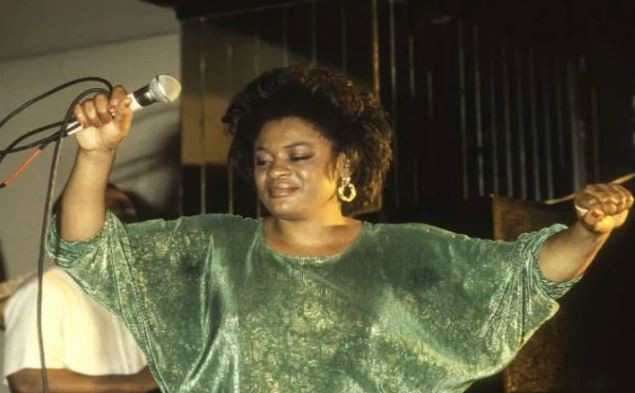
Congolese songbird Tshala Muana is dead.
The 64-year-old song writer and vocalist, breathed her last in a hospital in Kinshasa, in the early hours of Saturday 10th December 2022, where she had been hospitalised.
Her death was first made public by her producer and spouse Claude Mashala.
"This morning, God took the life of Tshala Muana. May her soul rest in peace," said Mashala on his official Facebook page.
Mashala said Muana, who had been in hospital for a week, succumbed to respiratory complications. Tshala Muana is easily one of the most recognised and celebrated African female musicians. In the mid 1980s, she was a household name across the region with her songs, receiving regular airplay in many radio programmes. Her hit song 'karibu yangu' gained wild popularity in entertainment joints.
The showmanship that was introduced to Congolese music by James Brown, in the 1974 boxing bout concert, between the legendary Mohammed Ali and George Foreman, popularly known as 'Rumble in the Jungle 'and perfected by local bands like Orchestre Sosoliso and Orchestre Stukas, found a continuation into the 1980s through Muana's powerful stage performances. Her dancing prowess, described by others as near explicit, was a magnet that made fans cover long distances to attend her shows.
On this she easily had an edge over her competitors as the genre of music she did, 'mutwashi' , basically a traditional dance of the Baluba of the Kasai Province in DRC, is more danceable because of the heavy drum beats. She stuck to this folk dance and made it popular, gaining international reputation, doing the music with modern equipment and recording it in modern studios, as opposed to other musicians, who opted for rhumba, a Cuban style imported into Congo, flavored with local spices and later domesticated.
The fact that she mostly sang in her native tshiluba dialect gave her music a unique signature, identifiable to the Baluba culture and tradition, which is considered an important heritage of the country. Tshala Muana was born Elizabeth Muidikay, to Madeus Muidikayi, a soldier, and Alphonsine Tumba, on 13th March 1958, in Elisabethville, presently Lubumbashi. She began her music career as a dancer for several top musicians, among them Mpongo Love and Abeti Masikini in Kinshasa in the mid-1970s.
- Former death row inmate speaks on life after prison
- Wanavokali gives assurance of love in new single
- Cold case of Tupac's death reopened for investigation
- Euphoria actor Angus Cloud dead
Keep Reading
It wasn't until 1981, when she traveled to Paris, that her potential as a gifted song writer and vocalist broke the ground for the music world. It was in Paris that she released her first album, titled Kami, featuring session guitarist Rigo Star and others. She also had several musical sojourns in West Africa, that saw her incorporate some local musicians.
She released more than a dozen albums, in her musical life, with some of the songs turning out to be some of Congo's most popular. Among her popular hits include dezo dezo, nasi nabali, vuluka dilolo, tshibola, malu, bena moyo and kokola among others.
The Queen of Mutwashi, as she was popularly known also straddled life beyond music and dabbled in politics. After the May 1997 ouster of Mobutu Sese Seko, the Junta, Laurent Kabila appointed her to the transitional government. More recently, two years ago, her song ingratitude was construed by the authorities as a jibe at the government and this landed her in trouble. She was arrested, but later released. Having been a close political ally to Kabila, the song was deemed as criticising the new president, Felix Tshisekedi, for reneging in his post election agreement with Kabila, the country's former president.
Music fans across the world mourn her for her immesurable contribution to African music.
 The Standard Group Plc is a multi-media organization with investments in media
platforms spanning newspaper print
operations, television, radio broadcasting, digital and online services. The
Standard Group is recognized as a
leading multi-media house in Kenya with a key influence in matters of national and
international interest.
The Standard Group Plc is a multi-media organization with investments in media
platforms spanning newspaper print
operations, television, radio broadcasting, digital and online services. The
Standard Group is recognized as a
leading multi-media house in Kenya with a key influence in matters of national and
international interest.









